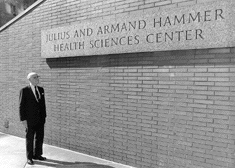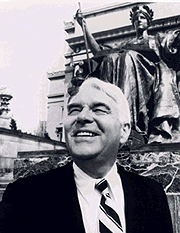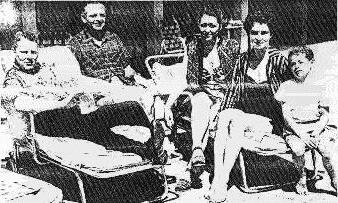c/o The White House
1600 Pennsylvania Avenue NW
Washington, DC 20500
Al Gore:
Arm and Hammer
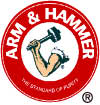 I was puzzled at how often you are referred to on the Internet as "Al Arm-and-Hammer Gore." The only association that I had to "Arm and Hammer" was to "Arm & Hammer" brand baking soda, and the connection between you and baking soda was not apparent.
I was puzzled at how often you are referred to on the Internet as "Al Arm-and-Hammer Gore." The only association that I had to "Arm and Hammer" was to "Arm & Hammer" brand baking soda, and the connection between you and baking soda was not apparent.And so I did a little research and came up with the following explanation, whose accuracy I invite you to comment upon.
The Arm & Hammer Baking Soda logo, to begin, gives the impression of being irrelevant (though it will prove not to be so entirely) to the question of the origin and meaning of the appellation "Al Arm-and-Hammer Gore." The logo is owned by Church & Dwight Co., Inc., which explains it as follows:
|
THE HISTORY OF THE ARM AND HAMMER� TRADEMARK The ARM & HAMMER symbol was first used in the early 1860�s by James A. Church, the son of Dr. Austin Church, one of the founders of our business. James A. Church operated a spice and mustard business known as the Vulcan Spice Mills. In Roman mythology, Vulcan, the god of fire, was especially skilled in fashioning ornaments and arms for the gods and heroes. The ARM & HAMMER symbol, therefore, represented the arm of Vulcan with hammer in hand about to descend on an anvil. Church & Dwight, Company Information, History of the Logo, www.churchdwight.com/company/company_information.htm |
As the above does not appear helpful, we pass on to the observation that the Arm and Hammer symbol does not originate with the Church family business, but rather has been widely used by others for other purposes. Traditionally, the Arm and Hammer image symbolizes manufacturing or industry, as for example on Wisconsin's Coat of Arms and State Flag:
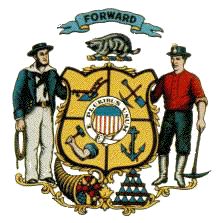
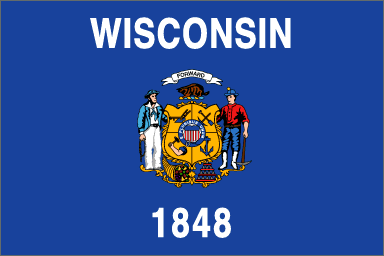
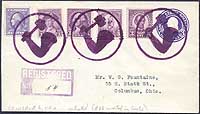 In Lewisburg, Ohio in 1932, an Arm and Hammer rubber stamp was used to cancel postage
(
www.stuartkatz.com/fancycovers3.htm
), the symbol presumably employed here in its reference to manufacturing or industry.
In Lewisburg, Ohio in 1932, an Arm and Hammer rubber stamp was used to cancel postage
(
www.stuartkatz.com/fancycovers3.htm
), the symbol presumably employed here in its reference to manufacturing or industry.
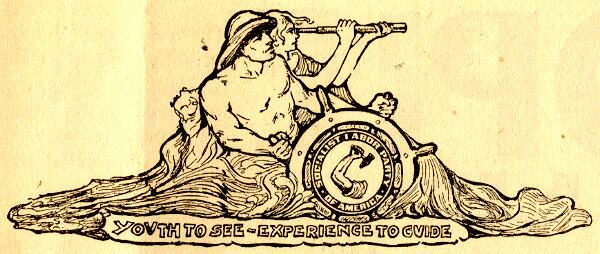
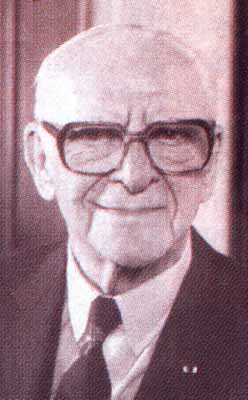
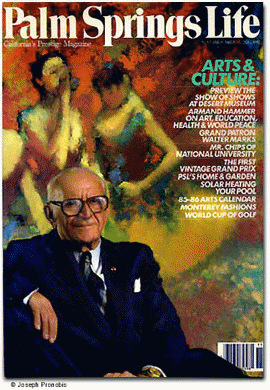
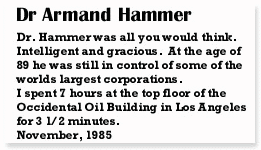

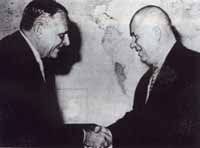
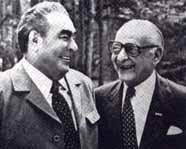
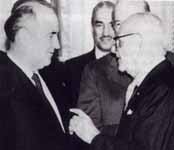
 In his declining years, Armand took it into his head to win himself a Nobel Peace Prize. However, his attempt to get President Carter to nominate him was met with refusal. Hoping to get Prince Charles to convince Prime Minister Margaret Thatcher to nominate him, he provided Charles with free water-color lessons, and gave $5 million to one of Charles's philanthropic projects, United World College of the American West, which ended up being named not after Prince Charles who had the inspiration, but after the financier who was distributing stolen money in his attempt to buy a Nobel Prize.
In his declining years, Armand took it into his head to win himself a Nobel Peace Prize. However, his attempt to get President Carter to nominate him was met with refusal. Hoping to get Prince Charles to convince Prime Minister Margaret Thatcher to nominate him, he provided Charles with free water-color lessons, and gave $5 million to one of Charles's philanthropic projects, United World College of the American West, which ended up being named not after Prince Charles who had the inspiration, but after the financier who was distributing stolen money in his attempt to buy a Nobel Prize.